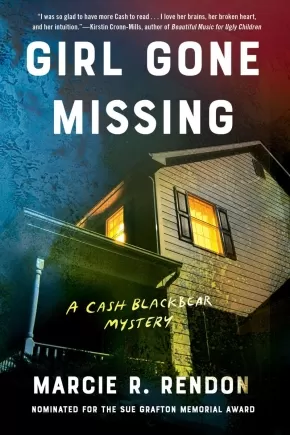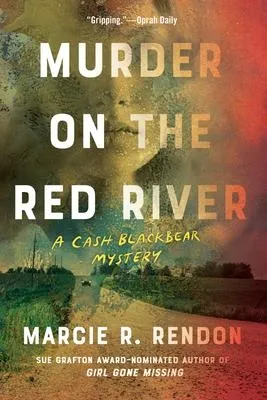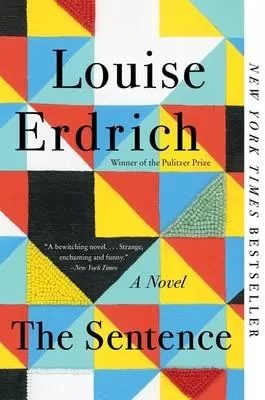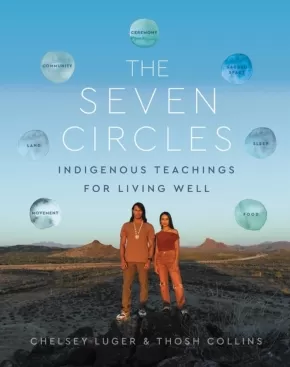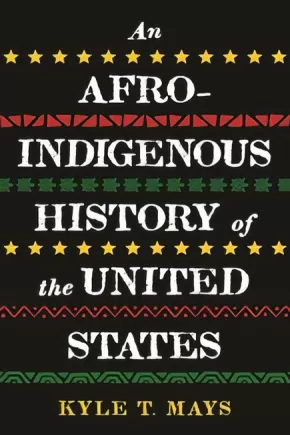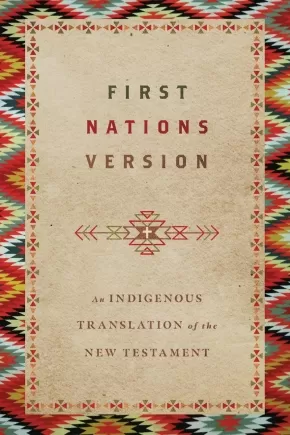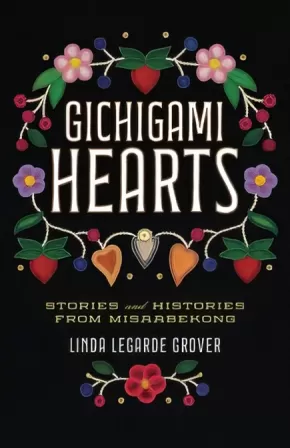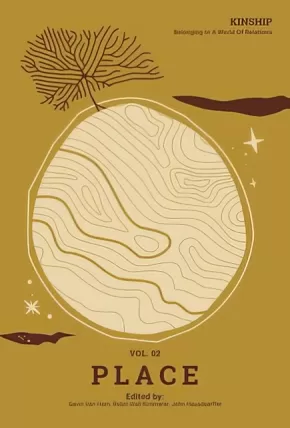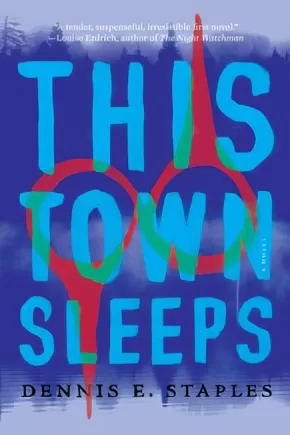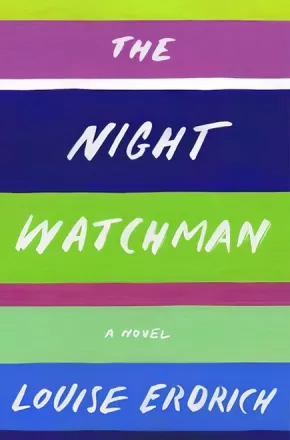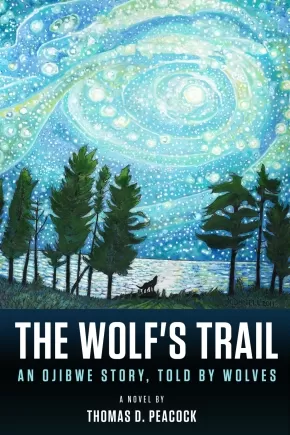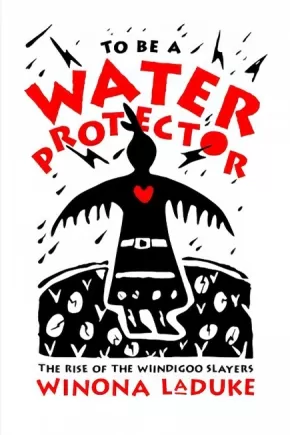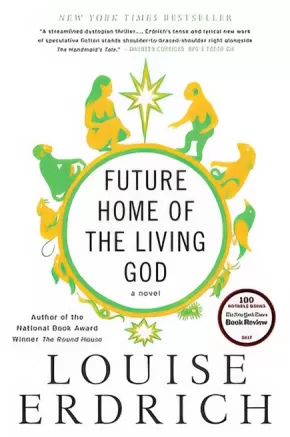
Ojibwe (Chippewa)
16
-
30
of
39 Results;
Sort By
Go To
of 3
Girl Gone Missing
$22.95
Format:
Paperback
Text Content Territories:
Indigenous American; Native American; Anishinaabeg; Ojibwe (Chippewa);
ISBN / Barcode: 9781641293785
Synopsis:
Synopsis:
Marcie R. Rendon’s follow-up to Murder on the Red River finds Cash helping Sheriff Wheaton solve a murder that has likeness to the cases of missing and murdered Native women.
Cash is off to a local college with the help of Wheaton, who wants her to take hold of her life and aspire to better things. At Moorhead State she sees that people talk a lot but mostly about nothing, not like the men in the fields she’s known all her life, who hold the rich topsoil in their hands, talk fertilizer and weather and prices on the Grain Exchange.
In between classes and hauling beets, drinking beer and shooting pool, she begins to dream of the Cities and blonde Scandinavian girls calling for help.
Reviews
"Rendon is a natural storyteller and a consummate writer, and we’re indebted to Cinco Puntos Press in El Paso for bringing the unforgettable Cash Blackbear to life. There isn’t a protagonist in recent fiction with the bearing of Rendon’s creation, and we’re the better for knowing her."—Jeffrey Mannix
"I won’t recount the terror, the drama, and the bravery of what follows. You can read the book yourself. The ending, I’ll just say, is deeply satisfying. Rendon has been working for years in the prisons with women who are incarcerated for prostitution, soliciting, and other offenses. Teaching them to tell their stories and access their inner writing voice. She’s able to convey the savagery of the system, what it does to women and their families, how deeply it is connected to poverty, and how it reaches into white rural and suburban areas as well as communities of color." —Ann Markusen, Grand Rapids Herald-Review
"Darn that Marcie Rendon but she did it again. She wrote another book featuring Renee “Cash” Blackbear which invariably led to non-stop, compulsive reading and thoughts about the 19-year-old protagonist...This is a good book. If you read it, block out uninterrupted time. It’s hard to put down."—Deborah Locke,The Circle News: Native American News and Arts
"The vivid writing and keen eye keep the pages turning and readers hoping for another book in this series."—Wendy J. Fox, Buzzfeed
"Rendon's refreshing sequel to 2017's Murder on the Red River...When [Cash] hears about a missing coed, she contacts [Sheriff] Wheaton. Since they previously worked together successfully on a murder, Wheaton trusts Cash’s sharp instincts and asks for her help in solving the case...Rendon, herself a member of the White Earth Anishinabe Nation, highlights the plight of Native Americans who were forcibly adopted by whites and Cash’s discomfort in a land that is and is not hers. Readers will look forward to Cash’s next outing."—Publishers Weekly
"In her second outing, Cash Blackbear goes off to college and finds herself embroiled in the mystery of a missing classmate. 'I'm not used to folks treating me like I'm stupid,' says Cash. But Moorhead State is another world, one slow to disclose the secrets of its initiated."—Kirkus Reviews
Series Information
This is the second book in the Cash Blackbear Mystery series from author Marcie Rendon.
Additional Information
336 pages | 5.51" x 8.26" | Paperback
Murder on the Red River
$22.95
Format:
Paperback
Text Content Territories:
Indigenous American; Native American; Anishinaabeg; Ojibwe (Chippewa);
Reading Level: N/A
ISBN / Barcode: 9781641293761
Synopsis:
Synopsis:
1970s, Red River Valley between North Dakota and Minnesota: Renee “Cash” Blackbear is 19 years old and tough as nails. She lives in Fargo, North Dakota, where she drives truck for local farmers, drinks beer, plays pool, and helps solve criminal investigations through the power of her visions. She has one friend, Sheriff Wheaton, her guardian, who helped her out of the broken foster care system.
One Saturday morning, Sheriff Wheaton is called to investigate a pile of rags in a field and finds the body of an Indian man. When Cash dreams about the dead man’s weathered house on the Red Lake Reservation, she knows that’s the place to start looking for answers. Together, Cash and Wheaton work to solve a murder that stretches across cultures in a rural community traumatized by racism, genocide, and oppression.
Reviews
“More of a coming of age story than a mystery … the spare prose-poetry of her descriptions and dialogue is a lot more interesting than anything she has to say about crime or detection.”—Kirkus Reviews
“An appealing 19-year-old heroine, Renee 'Cash' Blackbear, lifts [Marcie] Rendon’s first mystery.”—Publishers Weekly
“[Rendon] is one heck of a mystery novelist. Rendon’s Cash Blackbear books are gripping vehicles that tell broader stories about the historical persecution of American Indians.”—Oprah Daily
Series Information
This is the first book in the Cash Blackbear Mystery series from author Marcie Rendon.
Additional Information
320 pages | 5.52" x 8.22" | Paperback
Seven Aunts
$30.99
Format:
Paperback
Text Content Territories:
Indigenous American; Native American; Anishinaabeg;
Reading Level: N/A
ISBN / Barcode: 9781517912857
Synopsis:
Synopsis:
Part memoir, part cultural history, these memories of seven aunts holding home and family together tell a crucial, often overlooked story of women of the twentieth century.
They were German and English, Anishinaabe and French, born in the north woods and Midwestern farm country. They moved again and again, and they fought for each other when men turned mean, when money ran out, when babies—and there were so many—added more trouble but even more love. These are the aunties: Faye, who lived in California, and Lila, who lived just down the street; Doreen, who took on the bullies taunting her “mixed-blood” brothers and sisters; Gloria, who raised six children (no thanks to all of her “stupid husbands”); Betty, who left a marriage of indenture to a misogynistic southerner to find love and acceptance with a Norwegian logger; and Carol and Diane, who broke the warped molds of their own upbringing.
From the fabric of these women’s lives, Staci Lola Drouillard stitches a colorful quilt, its brightly patterned pieces as different as her aunties, yet alike in their warmth and spirit and resilience, their persistence in speaking for their generation. Seven Aunts is an inspired patchwork of memoir and reminiscence, poetry, testimony, love letters, and family lore.
In this multifaceted, unconventional portrait, Drouillard summons ways of life largely lost to history, even as the possibilities created by these women live on. Unfolding against a personal view of the settler invasion of the Midwest by men who farmed and logged, fished and hunted and mined, it reveals the true heart and soul of that history: the lives of the women who held together family, home, and community—women who defied expectations and overwhelming odds to make a place in the world for the next generation.
Reviews
"Seven Aunts is a celebration of the women in Staci Lola Drouillard’s family who struggled to escape a daunting legacy with unsung courage, humor, and unbreakable love for family. Far more than a family history, Seven Aunts is an honor song that reveals the everyday heroism of these women’s lives."—Diane Wilson, author of The Seed Keeper
"Seven Aunts gives us a unique and privileged insight to the intimate lives and history of a blended Indigenous and immigrant family in northern Minnesota. Staci Lola Drouillard has written with honesty and truth about ‘the treacherous beauty of life’ in a family rich in characters, in love and loss, all with great humor. Anaïs Nin wrote that reaching deep into the personal becomes universal. Seven Aunts is exactly that. It speaks to us of the universal love of family, the reality of historic social challenges, and the strength of the unbreakable bonds of knowing."—Hazel Belvo
Additional Information
320 pages | 5.50" x 8.50" | 7 b&w illustrations | Paperback
The Peacekeeper: A Novel
$20.95
Format:
Paperback
Text Content Territories:
Indigenous American; Native American; Anishinaabeg; Ojibwe (Chippewa);
Reading Level: N/A
ISBN / Barcode: 9781542036511
Synopsis:
Synopsis:
Against the backdrop of a never-colonized North America, a broken Ojibwe detective embarks on an emotional and twisting journey toward solving two murders, rediscovering family, and finding himself.
North America was never colonized. The United States and Canada don’t exist. The Great Lakes are surrounded by an independent Ojibwe nation. And in the village of Baawitigong, a Peacekeeper confronts his devastating past.
Twenty years ago to the day, Chibenashi’s mother was murdered and his father confessed. Ever since, caring for his still-traumatized younger sister has been Chibenashi’s privilege and penance. Now, on the same night of the Manoomin harvest, another woman is slain. His mother’s best friend. This leads to a seemingly impossible connection that takes Chibenashi far from the only world he’s ever known.
The major city of Shikaakwa is home to the victim’s cruelly estranged family—and to two people Chibenashi never wanted to see again: his imprisoned father and the lover who broke his heart. As the questions mount, the answers will change his and his sister’s lives forever. Because Chibenashi is about to discover that everything about their lives has been a lie.
Reviews
“An excellent example of an imagined alternative North America where restorative justice is at the forefront, and with characters who are well-developed, this is a great debut from an author to watch.” —Shondaland
Additional Information
318 pages | 5.50" x 8.25"
The Sentence (PB)
$24.00
Format:
Paperback
Text Content Territories:
Indigenous American; Native American; Anishinaabeg; Ojibwe (Chippewa);
ISBN / Barcode: 9780062671134
Synopsis:
Synopsis:
In this unusual and forceful novel, Pulitzer Prize and National Book Award–winning author Louise Erdrich creates a wickedly funny ghost story, a tale of passion, of a complex marriage, and of a woman's relentless errors.
The Sentence asks what we owe to the living, the dead, to the reader and to the book. A small independent bookstore in Minneapolis is haunted from November 2019 to November 2020 by the store's most annoying customer. Flora dies on All Soul's Day, but she simply won't leave the store. Tookie, who has landed a job selling books after years of incarceration that she survived by reading "with murderous attention," must solve the mystery of this haunting while at the same time trying to understand all that occurs in Minneapolis during a year of grief, astonishment, isolation, and furious reckoning.
The Sentence begins on All Soul’s Day 2019 and ends on All Soul’s Day 2020. Its mystery and proliferating ghost stories during this one year propel a narrative as rich, emotional, and profound as anything Louise Erdrich has written.
Additional Information
400 pages | 5.31" x 8.00" | Paperback
The Seven Circles: Indigenous Teachings for Living Well
$36.99
Format:
Hardcover
Text Content Territories:
Indigenous American; Native American; Sioux; Pima (Akimel O'odham); Osage; Haudenosaunee (Iroquois); Seneca; Cayuga; Anishinaabeg; Ojibwe (Chippewa); Turtle Mountain Anishinaabe;
Grade Levels: 12; University/College;
ISBN / Barcode: 9780063119208
Synopsis:
Synopsis:
In this revolutionary self-help guide, two beloved Native American wellness activists offer wisdom for achieving spiritual, physical, and emotional wellbeing rooted in Indigenous ancestral knowledge.
When wellness teachers and husband-wife duo Chelsey Luger and Thosh Collins founded their Indigenous wellness initiative, Well for Culture, they extended an invitation to all to honor their whole self through Native wellness philosophies and practices. In reclaiming this ancient wisdom for health and wellbeing—drawing from traditions spanning multiple tribes—they developed the Seven Circles, a holistic model for modern living rooted in timeless teachings from their ancestors. Luger and Collins have introduced this universally adaptable template for living well to Ivy league universities and corporations like Nike, Adidas, and Google, and now make it available to everyone in this wise guide.
The Seven Circles model comprises interconnected circles that keep all aspects of our lives in balance, functioning in harmony with one another. They are:
- Food
- Movement
- Sleep
- Ceremony
- Sacred Space
- Land
- Community
In The Seven Circles, Luger and Collins share intimate stories from their life journeys growing up in tribal communities, from the Indigenous tradition of staying active and spiritually centered through running and dance, to the universal Indigenous emphasis on a light-filled, minimalist home to create sacred space. Along the way, Luger and Collins invite readers to both adapt these teachings to their lives as well as do so without appropriating and erasing the original context, representing a critical new ethos for the wellness space. Each chapter closes with practical advice on how to engage with the teachings, as well as wisdom for keeping that particular circle in harmony with the others.
With warmth and generosity—and 75 atmospheric photographs by Collins throughout—The Seven Circles teaches us how to connect with nature, with our community, and with ourselves, and to integrate ancient Indigenous philosophies of health and wellbeing into our own lives to find healing and balance.
Reviews
“A life-changing holistic guide to wellness rooted in empowerment, resiliency, and ‘good medicine.’ This book is for any human being searching for wellness solutions in a chaotic world, a true antidote to colonization.” — Vina Brown, Indigenous Scholar, Entrepreneur, Artist, and Professor of Indigenous Studies at Northwest Indian College
“The Seven Circles is a true innovation in Indigenous thought; it brings our shared heritage and traditional teachings to life. Truly inspiring. Readers will find their journey to be a motivating guide for self-transformation.” — Taiaiake Alfred, Mohawk Philosopher
“While the term ‘wellness’ has been co-opted and diluted by (primarily white) social media influencers in recent years, Luger and Collins are recentering the conversation around how to use Indigenous cultural values, foods, and modalities of movement as tools for spiritual, mental, physical, and emotional healing.” — Vanity Fair
“[Two of the] faces in the health and wellness scene that are pushing for inclusivity, justice, and kindness, toppling old conventions to make their own…Luger and Collins rewrite modern narratives regarding Native health while addressing complex histories and ongoing disparities.” — Outside magazine
“Spellbinding. This may be the first book I’ve ever read that made me stop and decide, “I’m making this change now!” Seven Circles opened my eyes to a way of life that is tested by time, guided by nature, and urgently needed today." — Christopher McDougall, author of Born to Run, Natural Born Heroes, and Running with Sherman
“Wisdom abounds in this stimulating offering.” — Publishers Weekly
“Luger and Collins provide a range of sensible, informed, accessible guidance for both small- and large-scale lifestyle changes. An appealing manual for healing the self through Indigenous traditions.” — Kirkus Reviews
Additional Information
256 pages | 7.00" x 9.00" | 75 Colour Photos | Hardcover
An Afro-Indigenous History of the United States
$36.95
Format:
Hardcover
Text Content Territories:
Indigenous American; Native American; Anishinaabeg; Ojibwe (Chippewa); Saginaw Chippewa ;
Reading Level: N/A
ISBN / Barcode: 9780807011683
Synopsis:
Synopsis:
The first intersectional history of the Black and Native American struggle for freedom in the United States that also reframes our understanding of who was Indigenous in early America.
Beginning with pre-Revolutionary America and moving into the movement for Black lives and contemporary Indigenous activism, Afro-Indigenous historian, Kyle T. Mays argues that the foundations of the US are rooted in antiblackness and settler colonialism, and that these parallel oppressions continue into the present. He explores how Black and Indigenous peoples have always resisted and struggled for freedom, sometimes together, and sometimes apart. Whether to end African enslavement and Indigenous removal or eradicate capitalism and colonialism, Mays show how the fervor of Black and Indigenous peoples calls for justice have consistently sought to uproot white supremacy.
Mays uses a wide-array of historical activists and pop culture icons, “sacred” texts, and foundational texts like the Declaration of Independence and Democracy in America. He covers the civil rights movement and freedom struggles of the 1960s and 1970s, and explores current debates around the use of Native American imagery and the cultural appropriation of Black culture. Mays compels us to rethink both our history as well as contemporary debates and to imagine the powerful possibilities of Afro-Indigenous solidarity.
Reviews
“Nuanced and illuminating, this book is a worthy addition to a remarkable series.”—Booklist
“This book reveals uncomfortable truths about the dehumanizing legacies of both capitalism and colonialism while forging a path of reconciliation between the Black and Native communities. Mays offers a solid entry point for further study. An enlightening reexamination of American history.” —Kirkus Reviews
“Accessible and informative . . . Mays’s colloquial voice enlivens the often-distressing history . . . This immersive revisionist history sheds light on an overlooked aspect of the American past.”—Publishers Weekly
“This is a bold and original narrative that is required reading to comprehend the deep historical relationship between the Indigenous peoples who were transported from Africa into chattel slavery and the Indigenous peoples who were displaced by European settler colonialism to profit from the land and resources, two parallel realities in search of self-determination and justice.” —Roxanne Dunbar-Ortiz, author of An Indigenous Peoples’ History of the United States
“A bold, innovative, and astute analysis of how Blackness and Indigeneity have been forged as distinct yet overlapping social locations through the needs of capital, the logic of the nation-state, and the aims of US empire. While we know that slavery and settler colonialism are intricately linked, Kyle Mays uniquely demonstrates that the afterlives of these two institutions are also linked. They provide the land, bodies, and capital for ‘newer’ systems of bondage to flourish, such as mass incarceration. You will never think of the peoples’ history the same way after reading An Afro-Indigenous History of the United States.” —Robin D. G. Kelley, author of Freedom Dreams: The Black Radical Imagination
“Dr. Mays brilliantly makes accessible the knowledge of how Native, Black, and Afro-Indigenous communities, under the oppressive projects of settler colonialism and white supremacy, have navigated points of tension and harm, while simultaneously revealing instances when we’ve resisted by way of solidarity and allyship. Ultimately, he reminds us that both the ‘Indian problem’ and the ‘Negro problem’ are, in fact, a white supremacist problem.”—Melanin Mvskoke, Afro-Indigenous (Mvskoke Creek) activist
Additional Information
272 pages | 6.25" x 9.35" | Hardcover
First Nations Version: An Indigenous Translation of the New Testament
$28.99
Editors:
Format:
Paperback
Text Content Territories:
Indigenous Canadian; Indigenous American; Native American; Indigenous Central American; Indigenous Peoples in Mexico;
Reading Level: N/A
ISBN / Barcode: 9780830813506
Synopsis:
Synopsis:
A New Testament in English by Native North Americans for Native North Americans and All English-Speaking Peoples
Many First Nations tribes communicate with the cultural and linguistic thought patterns found in their original tongues. The First Nations Version (FNV) recounts the Creator's Story—the Christian Scriptures—following the tradition of Native storytellers' oral cultures. This way of speaking, with its simple yet profound beauty and rich cultural idioms, still resonates in the hearts of First Nations people.
The FNV is a dynamic equivalence translation of the New Testament that captures the simplicity, clarity, and beauty of Native storytellers in English, while remaining faithful to the original language of the Bible. The culmination of a rigorous five-year translation process, this new Bible translation is a collaboration between organizations like OneBook and Wycliffe Associates, Indigenous North Americans from over twenty-five different tribes, and a translation council that consisted of twelve Native North American elders, pastors, young adults, and men and women from different tribes and diverse geographic locations. Whether you are Native or not, you will experience the Scriptures in a fresh and new way.
Read these sample passages to get a taste of what you'll find inside:
"The Great Spirit loves this world of human beings so deeply he gave us his Son—the only Son who fully represents him. All who trust in him and his way will not come to a bad end, but will have the life of the world to come that never fades—full of beauty and harmony. Creator did not send his Son to decide against the people of this world, but to set them free from the worthless ways of the world." John 3:16-17
"Love is patient and kind. Love is never jealous. It does not brag or boast. It is not puffed up or big-headed. Love does not act in shameful ways, nor does it care only about itself. It is not hot-headed, nor does it keep track of wrongs done to it. Love is not happy with lies and injustice, but truth makes its heart glad. Love keeps walking even when carrying a heavy load. Love keeps trusting, never loses hope, and stands firm in hard times. The road of love has no end." 1 Corinthians 13:4-8
Reviews
"While Wildman recasts the New Testament in a distinctly Indigenous image, he remains faithful to evangelical interpretations of Christian scripture, typified in the many italicized explanations that appear throughout and are meant to add 'reasonably implied' clarifications and cultural notes, such as explication on ancient festivals like the Pentecost. This remarkable retelling offers plenty of rewards and will especially pique those open to a novel interpretation of the religious text." — Publishers Weekly starred review, August 2021
"Reading the First Nations Version of the New Testament is like listening to a wise elder pass down ancient teachings. Its oral cadences give the Scriptures new room to breathe. While contemporary translations focus on updating language in a modern mode, the FNV recaptures the sense of tradition that binds faithful readers to our past and to the story that tells us who we are. It is a good gift to everyone who walks the Jesus Way." — L. Daniel Hawk, professor of Old Testament and Hebrew at Ashland Theological Seminary
"From the beginning, the story of Jesus has been a translated story. Jesus spoke in Aramaic, but Matthew, Mark, Luke, and John wrote their Gospels in Greek. The story of Jesus is intended to be translated to every tribe, tongue, people, and nation. That translation is intended, not just permitted, serves to show how we must resist any cultural domination of the gospel. Terry Wildman has done a masterful job of rendering the New Testament into the storytelling motif characteristic of Native Americans. It should tell us something important when we realize how beautifully the story of Jesus can be adapted to the style and vocabulary of indigenous people. I deeply appreciate Terry Wildman's retelling of the story of Jesus for First Nations people. I believe the Great Spirit is pleased." — Brian Zahnd, pastor of Word of Life Church in St. Joseph, Missouri, and author of Beauty Will Save the World
"I've often wondered what it might look like if Jesus incarnated within another culture. Jesus, a first-century Jewish teacher in a corner of Rome's empire, lived, died, and rose as a human being within a specific time and place. What I love about the First Nations Version is how it translates this gospel story into a language of another context: First Nations! So get swept away into the story of the Great Spirit as he invites us to the blessing way of the good road. Read this beautiful retelling of the Scriptures that is not only beneficial for First Nations communities but for all who desire to allow the Great Spirit to transform their imaginations!" — Kurt Willems, pastor and auth
Educator Information
The First Nations Version (FNV) Translation Council consists of twelve First Nations individuals representing a cross-section of Native North Americans—elders, pastors, young adults, and men and women from differing tribes and diverse geographic locations. This council also represents a diversity of church and denominational traditions to minimize bias. The council determined the style and method of translation to be used and continues to be involved in ongoing translation, review, and cultural consultation. The FNV is a dynamic equivalence translation produced in partnership with Rain Ministries and OneBook Canada, with help from Wycliffe Associates.
AdditionalInformation
512 pages | 6.00" x 9.00" | Paperback
Gichigami Hearts: Stories and Histories from Misaabekong
$20.99
Format:
Paperback
Text Content Territories:
Indigenous American; Native American; Anishinaabeg; Ojibwe (Chippewa); Bois Forte Band of Chippewa;
Reading Level: N/A
ISBN / Barcode: 9781517911935
Synopsis:
Synopsis:
Award-winning author Linda LeGarde Grover interweaves family and Ojibwe history with stories from Misaabekong (the place of the giants) on Lake Superior.
Long before there was a Duluth, Minnesota, the massive outcropping that divides the city emerged from the ridge of gabbro rock running along the westward shore of Lake Superior. A great westward migration carried the Ojibwe people to this place, the Point of Rocks. Against this backdrop—Misaabekong, the place of the giants—the lives chronicled in Linda LeGarde Grover’s book unfold, some in myth, some in long-ago times, some in an imagined present, and some in the author’s family history, all with a deep and tenacious bond to the land, one another, and the Ojibwe culture.
Within the larger history, Grover tells the story of her ancestors’ arrival at the American Fur Post in far western Duluth more than two hundred years ago. Their fortunes and the family’s future are inextricably entwined with tales of marriages to voyageurs, relocations to reservation lands, encounters with the spirits of the lake and wood creatures, the renewal of life—in myth and in art, the search for meaning in the transformations of our day is always vital. Finally, in one man’s struggles, age-old tribulations, the intergenerational traumas of extended families and communities, and a uniquely Ojibwe appreciation for the natural and spiritual worlds converge, forging the Ojibwe worldview and will to survive as his legacy to his descendants.
Blending the seen and unseen, the old and the new, the amusing and the tragic and the hauntingly familiar, this lyrical work encapsulates a way of life forever vibrant at the Point of Rocks.
Reviews
"With compelling stories of sacred places, beloved people, myths, legends, and treasured memories, Gichigami Hearts is a moving tribute to the Ojibwe past."— Carolyn Holbrook, author of Tell Me Your Names and I Will Testify
"With stories of the essence of land and people, Linda LeGarde Grover weaves a generational history of a sacredness inseparable from place, of the unbroken chain of Anishinaabe existence in Missabekong. Her powerful prose and ethereal poetry wash over the pages like waves along the shore of Lake Superior, revealing a strength of survival that goes beyond memory and reminding us to watch, listen, and breathe."—Gwen Westerman, Minnesota State University, Mankato
"In Linda LeGarde Grover’s Gichigami Hearts, we are given the gift of an intensely personal, and at the same time brilliant, walkthrough of Grover’s part of the Anishinaabe universe. Just a tremendously lovely and unique book."—Erika T. Wurth, author of White Horse
Educator Information
Contents
Part I. Point of Rocks
Gabbro
An Old Story
Bimosewin: From the Bethel to the Union Gospel Mission
From the Rocks to the Docks
Anishinaabe Relatives and Holy Places
Grandparents
Life Among the Italians
The Beanbag
Rain, Fog, Ghost, Spider
Part II. Gichigami Hearts
Waawaashkeshi
Mooz
Lake Hearts
Lake Spirits
Sea Smoke on Gichigami
Barney-enjiss
The Stone Tomahawk
Part III. Rabbits in Wintertime
Listening and Remembering By Heart
Rabbits in the Snow
Niizh Odain: The Wolf and the Rabbit
The Harbor: Nanaboozhoo’s Brothers of the Heart
Woods Lovely, Dark, and Deep
Rabbits Watching Over Onigamiising
Part IV. Traveling Song
The End and Renewal of the Earth
Redemption
Mishomis
Grandfather-iban Gi-bimose
Places Remembered, Though Some Have Changed
Homeland
Traveling Song
Acknowledgments
Additional Information
200 pages | 5.50" x 8.50" | 8 Black and white illustrations | Paperback
Kinship: Belonging in a World of Relations, Vol. 2 - Place
$29.95
Editors:
Format:
Paperback
Text Content Territories:
Indigenous;
Reading Level: N/A
ISBN / Barcode: 9781736862513
Synopsis:
Additional Information
204 pages | 5.27" x 7.75" | Paperback
Synopsis:
Volume 2 of the Kinship series revolves around the question of place-based relations: To what extent does crafting a deeper connection with the Earth’s bioregions reinvigorate a sense of kinship with the place-based beings, systems, and communities that mutually shape one another?
We live in an astounding world of relations. We share these ties that bind with our fellow humans—and we share these relations with nonhuman beings as well. From the bacterium swimming in your belly to the trees exhaling the breath you breathe, this community of life is our kin—and, for many cultures around the world, being human is based upon this extended sense of kinship.
Kinship: Belonging in a World of Relations is a lively series that explores our deep interconnections with the living world. The five Kinship volumes—Planet, Place, Partners, Persons, Practice—offer essays, interviews, poetry, and stories of solidarity, highlighting the interdependence that exists between humans and nonhuman beings. More than 70 contributors—including Robin Wall Kimmerer, Richard Powers, David Abram, J. Drew Lanham, and Sharon Blackie—invite readers into cosmologies, narratives, and everyday interactions that embrace a more-than-human world as worthy of our response and responsibility.
Given the place-based circumstances of human evolution and culture, global consciousness may be too broad a scale of care. “Place,” Volume 2 of the Kinship series, addresses the bioregional, multispecies communities and landscapes within which we dwell. The essayists and poets in this volume take us around the world to a variety of distinctive places—from ethnobiologist Gary Paul Nabhan’s beloved and beleaguered sacred U.S.-Mexico borderlands, to Pacific islander and poet Craig Santos Perez’s ancestral shores, to writer Lisa María Madera’s “vibrant flow of kinship” in the equatorial Andes expressed in Pacha Mama’s constitutional rights in Ecuador. As Chippewa scholar-activist Melissa Nelson observes about kinning with place in her conversation with John Hausdoerffer: “Whether a desert mesa, a forested mountain, a windswept plain, or a crowded city—those places also participate in this serious play with raven cries, northern winds, car traffic, or coyote howls.” This volume reveals the ways in which playing in, tending to, and caring for place wraps us into a world of kinship.
Proceeds from sales of Kinship benefit the nonprofit, non-partisan Center for Humans and Nature, which partners with some of the brightest minds to explore human responsibilities to each other and the more-than-human world. The Center brings together philosophers, ecologists, artists, political scientists, anthropologists, poets and economists, among others, to think creatively about a resilient future for the whole community of life.
We live in an astounding world of relations. We share these ties that bind with our fellow humans—and we share these relations with nonhuman beings as well. From the bacterium swimming in your belly to the trees exhaling the breath you breathe, this community of life is our kin—and, for many cultures around the world, being human is based upon this extended sense of kinship.
Kinship: Belonging in a World of Relations is a lively series that explores our deep interconnections with the living world. The five Kinship volumes—Planet, Place, Partners, Persons, Practice—offer essays, interviews, poetry, and stories of solidarity, highlighting the interdependence that exists between humans and nonhuman beings. More than 70 contributors—including Robin Wall Kimmerer, Richard Powers, David Abram, J. Drew Lanham, and Sharon Blackie—invite readers into cosmologies, narratives, and everyday interactions that embrace a more-than-human world as worthy of our response and responsibility.
Given the place-based circumstances of human evolution and culture, global consciousness may be too broad a scale of care. “Place,” Volume 2 of the Kinship series, addresses the bioregional, multispecies communities and landscapes within which we dwell. The essayists and poets in this volume take us around the world to a variety of distinctive places—from ethnobiologist Gary Paul Nabhan’s beloved and beleaguered sacred U.S.-Mexico borderlands, to Pacific islander and poet Craig Santos Perez’s ancestral shores, to writer Lisa María Madera’s “vibrant flow of kinship” in the equatorial Andes expressed in Pacha Mama’s constitutional rights in Ecuador. As Chippewa scholar-activist Melissa Nelson observes about kinning with place in her conversation with John Hausdoerffer: “Whether a desert mesa, a forested mountain, a windswept plain, or a crowded city—those places also participate in this serious play with raven cries, northern winds, car traffic, or coyote howls.” This volume reveals the ways in which playing in, tending to, and caring for place wraps us into a world of kinship.
Proceeds from sales of Kinship benefit the nonprofit, non-partisan Center for Humans and Nature, which partners with some of the brightest minds to explore human responsibilities to each other and the more-than-human world. The Center brings together philosophers, ecologists, artists, political scientists, anthropologists, poets and economists, among others, to think creatively about a resilient future for the whole community of life.
Educator & Series Information
Contributors are both Indigenous and non-Indigenous.
Contributors are both Indigenous and non-Indigenous.
Kinship: Belonging in a World of Relations is a lively series that explores our deep interconnections with the living world. The five Kinship volumes—Planet, Place, Partners, Persons, Practice—offer essays, interviews, poetry, and stories of solidarity, highlighting the interdependence that exists between humans and nonhuman beings. More than 70 contributors—including Robin Wall Kimmerer, Richard Powers, David Abram, J. Drew Lanham, and Sharon Blackie—invite readers into cosmologies, narratives, and everyday interactions that embrace a more-than-human world as worthy of our response and responsibility.
Additional Information
204 pages | 5.27" x 7.75" | Paperback
This Town Sleeps: A Novel (PB)
$23.00
Format:
Paperback
Text Content Territories:
Indigenous American; Native American; Anishinaabeg; Ojibwe (Chippewa);
ISBN / Barcode: 9781640094642
Synopsis:
Synopsis:
Part mystery, part ghost story, a long unsolved murder becomes the singular fixation of an Indigenous American man living in far northern Minnesota as he grapples with his identity and that of his lover, a heavily closeted white man.
On an Ojibwe reservation called Languille Lake, within the small town of Geshig at the hub of the rez, two men enter into a secret romance. Marion Lafournier, a midtwenties gay Ojibwe man, begins a relationship with his former classmate Shannon, a white man who isn't ready to acknowledge his identity. While Marion is far more open about his sexuality, neither is immune to the realities of the lives of gay men in small towns and closed societies.
Then one night, while roaming the dark streets of Geshig, Marion unknowingly brings to life the spirit of a dog from beneath the elementary school playground. The mysterious revenant leads him to the grave of Kayden Kelliher, an Ojibwe basketball star who was murdered at the age of seventeen and whose presence still lingers in the memories of the townsfolk. While investigating the fallen hero's death, Marion discovers family connections and an old Ojibwe legend that may be the secret to unraveling the mystery he has found himself in.
Set on a reservation in far northern Minnesota, This Town Sleeps explores the many ways history, culture, landscape, and lineage shape our lives, our understanding of the world we inhabit, and the stories we tell ourselves to make sense of it all.
Reviews
“Elegant and gritty, angry and funny. Staples’s work is emotional without being sentimental. Dennis unmakes something in us, then remakes it, a quilt of characters that embody this town, this place, which sleeps but doesn’t dream, or it is all a dream we want to wake up from with its characters. We move through the dream that is this novel, unable to move or not move, arrested by the striking sentences and sentiments of a voice we can’t sleep to, one which wakes in us the ability to understand so much about ourselves and the way history and time weigh on us in ways it’s both understandable to stay asleep or to have to wake up from.” —Tommy Orange, author of There, There
"This novel is a town map, a crime map, a dream map of Geshig, Minnesota, its violent histories, its denials and desires. Marion Lafournier is a perfect tour guide because he knows everybody's secrets, and he sees clearly, even in the dark. Moody, a little noir, laced with the knife-blade humor only people who have been resisting genocide for five hundred years can pull off, and composed of riveting passages that refuse to look away, This Town Sleeps will haunt you with the beauty, despair, and hope of the characters whose lives it bears witness to. A rich and compelling debut." ––Pam Houston, author of Deep Creek: Finding Hope in the High Country
“Dennis Staples’ This Town Sleeps is part mystery, part family saga, part meditation. In language subtle and precise, it explores the echoing past, both tenuous and inescapable, illuminating the resonant powers of one’s physical and cultural landscapes. It wisely asks how the place of our being shapes not only our futures, but also our personal mythologies, how we understand ourselves. How it guides what we are and are not capable of. Both intimate and sweeping, This Town Sleeps is the work of a powerful, emerging hand. Its voice is already wise and knows to look for answers both between bodies—in the dark shadows of entwining limbs—and back across the paths of those who came before us. It knows the two are never far apart. This is a marvel of a first book.” —Derek Palacio, author of The Mortifications
Additional Information
224 pages | 5.49" x 8.23"
The Night Watchman (HC) (1 in Stock)
$35.99
Format:
Hardcover
Text Content Territories:
Indigenous American; Native American; Anishinaabeg; Ojibwe (Chippewa);
ISBN / Barcode: 9780062671189
Synopsis:
Synopsis:
Based on the extraordinary life of National Book Award-winning author Louise Erdrich’s grandfather who worked as a night watchman and carried the fight against Native dispossession from rural North Dakota all the way to Washington, D.C., this powerful novel explores themes of love and death with lightness and gravity and unfolds with the elegant prose, sly humor, and depth of feeling of a master craftsman.
Thomas Wazhashk is the night watchman at the jewel bearing plant, the first factory located near the Turtle Mountain Reservation in rural North Dakota. He is also a Chippewa Council member who is trying to understand the consequences of a new “emancipation” bill on its way to the floor of the United States Congress. It is 1953 and he and the other council members know the bill isn’t about freedom; Congress is fed up with Indians. The bill is a “termination” that threatens the rights of Native Americans to their land and their very identity. How can the government abandon treaties made in good faith with Native Americans “for as long as the grasses shall grow, and the rivers run”?
Since graduating high school, Pixie Paranteau has insisted that everyone call her Patrice. Unlike most of the girls on the reservation, Patrice, the class valedictorian, has no desire to wear herself down with a husband and kids. She makes jewel bearings at the plant, a job that barely pays her enough to support her mother and brother. Patrice’s shameful alcoholic father returns home sporadically to terrorize his wife and children and bully her for money. But Patrice needs every penny to follow her beloved older sister, Vera, who moved to the big city of Minneapolis. Vera may have disappeared; she hasn’t been in touch in months, and is rumored to have had a baby. Determined to find Vera and her child, Patrice makes a fateful trip to Minnesota that introduces her to unexpected forms of exploitation and violence, and endangers her life.
Thomas and Patrice live in this impoverished reservation community along with young Chippewa boxer Wood Mountain and his mother Juggie Blue, her niece and Patrice’s best friend Valentine, and Stack Barnes, the white high school math teacher and boxing coach who is hopelessly in love with Patrice.
In The Night Watchman, Louise Erdrich creates a fictional world populated with memorable characters who are forced to grapple with the worst and best impulses of human nature. Illuminating the loves and lives, the desires and ambitions of these characters with compassion, wit, and intelligence, The Night Watchman is a majestic work of fiction from this revered cultural treasure.
Awards
- 2021 Pulitzer Prize for Fiction
Additional Information
464 Pages | 6" x 9"
|
|
The Wolf's Trail: An Ojibwe Story, Told by Wolves
$25.50
Format:
Paperback
Text Content Territories:
Indigenous American; Native American; Anishinaabeg; Ojibwe (Chippewa);
ISBN / Barcode: 9781513645629
Synopsis:
Synopsis:
Additional Information
180 pages | 6.00" x 9.00"
To Be A Water Protector: The Rise of the Wiindigoo Slayers
$27.00
Format:
Paperback
Text Content Territories:
Indigenous American; Indigenous Canadian;
Grade Levels: University/College;
ISBN / Barcode: 9781773632674
Synopsis:
Synopsis:
Winona LaDuke is a leader in cultural-based sustainable development strategies, renewable energy, sustainable food systems and Indigenous rights. To Be a Water Protector explores issues that have been central to her activism for many years — sacred Mother Earth, our despoiling of Earth and the activism at Standing Rock and opposing Line 3.
For this book, Winona discusses several elements of a New Green Economy and the lessons we can take from activists outside the US and Canada. Also featured are her annual letters to Al Monaco, the CEO of Enbridge, in which she takes him to task for the company’s role in the climate crisis and presents him with an invoice for climate damages. In her unique way of storytelling, Winona LaDuke is inspiring, always a teacher and an utterly fearless activist, writer and speaker.
Reviews
"Since time immemorial, Indigenous Peoples have protected the earth’s precious water systems in recognition of our dependence on these living ecosystems. Water Protectors are earth warriors who put their bodies on the line in the face of powerful, violent and destructive extractive industries supported by Wiindigoo governors. Winona LaDuke is one of those Water Protectors who has made a compelling call to all peoples to rise up and protect the water and in so doing protect life itself on this planet." — Pamela Palmater, Author of Warrior Life
Additional Information
128 pages | 6.00" x 9.00"
Future Home of the Living God: A Novel (1 in Stock, in Reprint)
$21.99
Format:
Hardcover
Text Content Territories:
Indigenous American; Native American; Anishinaabeg; Ojibwe (Chippewa);
ISBN / Barcode: 9780062694065
Synopsis:
Synopsis:
Louise Erdrich, the New York Times bestselling, National Book Award-winning author of LaRose and The Round House, paints a startling portrait of a young woman fighting for her life and her unborn child against oppressive forces that manifest in the wake of a cataclysmic event.
The world as we know it is ending. Evolution has reversed itself, affecting every living creature on earth. Science cannot stop the world from running backwards, as woman after woman gives birth to infants that appear to be primitive species of humans. Twenty-six-year-old Cedar Hawk Songmaker, adopted daughter of a pair of big-hearted, open-minded Minneapolis liberals, is as disturbed and uncertain as the rest of America around her. But for Cedar, this change is profound and deeply personal. She is four months pregnant.
Though she wants to tell the adoptive parents who raised her from infancy, Cedar first feels compelled to find her birth mother, Mary Potts, an Ojibwe living on the reservation, to understand both her and her baby’s origins. As Cedar goes back to her own biological beginnings, society around her begins to disintegrate, fueled by a swelling panic about the end of humanity.
There are rumors of martial law, of Congress confining pregnant women. Of a registry, and rewards for those who turn these wanted women in. Flickering through the chaos are signs of increasing repression: a shaken Cedar witnesses a family wrenched apart when police violently drag a mother from her husband and child in a parking lot. The streets of her neighborhood have been renamed with Bible verses. A stranger answers the phone when she calls her adoptive parents, who have vanished without a trace. It will take all Cedar has to avoid the prying eyes of potential informants and keep her baby safe.
A chilling dystopian novel both provocative and prescient, Future Home of the Living God is a startlingly original work from one of our most acclaimed writers: a moving meditation on female agency, self-determination, biology, and natural rights that speaks to the troubling changes of our time.
Reviews
“Erdrich’s inclusiveness, her expansive vision of humanity surprises and pleases on every page…Erdrich’s virtuosity reminds me of an eagle in flight…Her wisdom blossoms from multicultural sources and is always inviting the reader in, in, to deeper understanding and identity.” — Hudson Review
“A streamlined dystopian thriller…Erdrich’s tense and lyrical new work of speculative fiction stands shoulder-to-braced-shoulder right alongside The Handmaid’s Tale.”— Maureen Corrigan, NPR’s Fresh Air
“Erdrich stuns again in Future Home of The Living God…She grounds her story in a kind of sharply drawn reality that makes the standard tropes of dark futurism that much more unnerving…Erdrich is a writer whose words carry a spiritual weight far beyond science, or fiction.”— Entertainment Weekly
“Erdrich is a seer, a visionary whose politics are inextricable from her fiction…[Future Home of the Living God] is an eerie masterpiece, a novel so prescient that though it conjures an alternate reality, it often provokes the feeling that, yes this is really happening.” — O, The Oprah Magazine
“In this fast-paced novel, rapid and catastrophic changes to human reproduction make the survival of the race uncertain…Erdrich imagines an America in which winter is a casualty of climate change, borders are sealed, men are ‘militantly insecure,’ and women’s freedom is evaporating…Vivid…Compelling.”— New Yorker
Additional Information
288 pages | 5.31" x 8.00" | Paperback
Sort By
Go To
of 3

